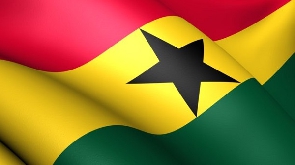 The highest score given to Ghana was 9 out of 10 but with recommendations for improvement
The highest score given to Ghana was 9 out of 10 but with recommendations for improvement
The Global Centre for Pluralism in collaboration with CDD-Ghana has launched the Global Pluralism Monitor Report on Ghana aimed at assessing Ghana’s commitment to fostering inclusivity and pluralism, focusing specifically on issues of ethnicity, religion, gender and the north-south divide.
The report, released during the launch scored Ghana high among other twenty (20) countries across the world in the areas of Commitment (international, national levels and inclusive citizenship), Practices (Claims-making & Contestation) and Group-Based Inequalities (Cultural), Leadership For Pluralism (performance of political parties) among others.
The highest score given to Ghana was 9 out of 10 but with recommendations for improvement.
Speaking at the launch, Secretary-General of the Global Centre for Pluralism, Meredith Preston McGhie noted the report was produced by a team of national experts on diversity and inclusion, drawing on a range of qualitative and quantitative data in the country through the use of Monitor Assessment Framework.
“The Global Pluralism Monitor is a tool developed to enable policymakers and practitioners to understand and measure the extent to which societies around the world are pluralistic”.
“The Monitor aims to “change the conversation” about ethnic/religious diversity, to promote a different approach that does not view diversity as a threat or problem to countries”.
Addressing the media on the sidelines of the launch, Meredith Preston McGhie revealed the report tries to give a fairly broad framing to the issues of ethnicity, religion, gender and the north-south divide which will help to better advance with the support of her outfit.
The Global Pluralism Monitor Report offers recommendations for policymakers and practitioners, on how to advance pluralism, and offers a basis for dialogue with stakeholders across society.
Rajvir Gill, Program Officer at the Global Centre for Pluralism in her presentation on the report observed that the Monitor is useful in identifying gaps, discovering new trends, conflict prevention and best practices.
She added that it equally aims to assess countries on their terms to reflect the highly contextual nature of pluralism; there’s no single route to success that all societies must follow.
She named the key findings in Ghana highlighted by the report as massive underrepresentation of socio-economic exploitation, gender rights institutions poorly resourced, data gaps on gender: SGBV to economic conditions (e.g. land), Existing Mechanisms for Pluralism: Affirmative Action Law, NPO Law and the NDPs.
The launch brought together stakeholders from government agencies, sector ministries and departments, political parties, CSOs, Academia, media and other distinguished individuals (both in-person and virtual) who shared their thoughts on the findings and offered recommendations on the report.
Head of the Political Science Department at the University of Ghana, Prof. Seidu Alidu who made his views known on the findings expressed optimism about the report expressed that it has highlighted the issues of commitment and practice as well as indicating the gap between commitment and practice which according to him, most reports usually do not focus on.
“One thing also I’ve seen as a remarkable point of departure from this and other reports which I’ve observed is to create an explanatory commentary for scores”.
“Most reports will always give you a raw score:5 out of 10 or 6 out 10 and sometimes it creates a lot of doubts and suspension but this actually provides the explanatory framework and the context, even the score is done which is really very helpful” he added.
Some other countries which equally undergone the assessment of the Global Pluralism Monitor include Canada, the UK, Germany, Bosnia, Jordan, Iraq, Sudan, Kenya, South Africa, Nigeria, Tunisia, Columbia, Bolivia, Mexico, Sri Lanka, Indonesia, Croatia, South Korea and Australia
The Global Centre for Pluralism is an independent, charitable organization founded by His Highness the Aga Khan and the Government of Canada.
The centre works with policy leaders, educators, and community builders around the world to amplify and implement the transformative power of pluralism.